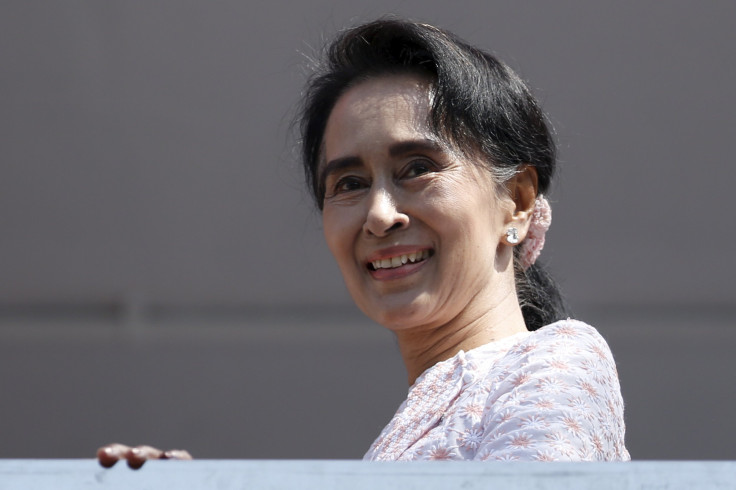Myanmar Elections: Suu Kyi Gets Majority In Lower House, Paving Way For Transition To Democracy

UPDATE: 4:40 EST -- Aung San Suu Kyi's National League for Democracy reached 126 seats in the upper house as of Friday afternoon, according to the Myanmar Times. The party now has a majority in both houses.
Original story:
Aung San Suu Kyi's National League for Democracy (NLD) won a majority of seats in the lower house of parliament and was also close to a majority in the upper house, with 80 percent of seats contested in Sunday's elections already declared. Her victory paves the way for a transition to democracy after 50 years of military rule.
The NLD had won 238 seats in the 440-seat lower house as of Friday morning, according to Myanmar Times. Only 330 seats were up for election, with 110 -- 25 percent -- reserved for the military. The ruling Union Solidarity and Development Party had 28 seats. The NLD has so far won 110 seats in the 228-seat upper house, according to Myanmar Times, where only 168 seats were up for election.
President Thein Sein, commander in chief Gen. Min Aung Hlaing and speaker of the lower house Shwe Mann already congratulated Suu Kyi and the NLD Wednesday, and U.S. President Barack Obama called her to convey his congratulations.
The parliament will elect a president by March next year. Suu Kyi, who retained her own seat in Kawmhu, Yangon, isn't eligible because of a law that bars people who are married to or closely related to foreigners. Suu Kyi's late husband was British, as are their two sons. She says she will rule as party leader above the president, whom she will choose.
If there is a peaceful turnover, Myanmar will have its first democratic government since 1962, when the military staged a coup. In 1990, the military called an election that Suu Kyi and her allies won. But the military then refused to hand over power, putting Suu Kyi under house arrest instead for most of the next 20 years. Under house arrest, she won the Nobel Peace Prize and became known as an "icon of democracy."
© Copyright IBTimes 2024. All rights reserved.











